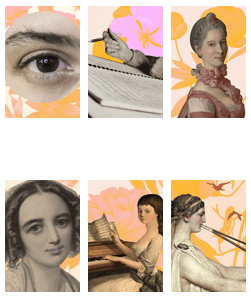BON DI VENEZIA, Anna

Many outstanding women scientists, scholars, artists, musicians and composers were found in Italy in the eighteenth century. One such female composer was Anna Bon from Venice. She was born in 1738 to a couple that both worked in opera productions. Her mother was a singer and her father worked as a librettist and set designer. At the age of four her parents enrolled her in the Ospedale Della Pietà in Venice as a tuition-paying pupil (figlia de spesi). Most of the children at the Ospedale were orphans but were exceptionally well trained in music. Francesco Gasparini was the continuo teacher at the Pietà for some time, Onofrio Penati taught woodwinds and for thirty-four years Antonio Vivaldi taught violin and viola in addition to composing for the girls.
Anna Bon studied at the Ospedale until the end of 1754, though she did leave periodically to tour with her parents as a musical prodigy. In 1755 her parents accepted a position within the Bayreuth-based court of Princess Wilhelmine of Prussia, older sister to King Frederick the Great of Prussia.
The sixteen-year-old composer held the position of “chamber music virtuoso” and dedicated this first set of compositions Six Chamber Sonatas for flute and continuo, Op.1 (1756) to the flute-playing King. Two further collections of compositions appeared around this time; Six Sonatas for harpsichord Op.2 (1757) and Six Divertimenti (Trio Sonatas) for two flutes and continuo, Op.3 (1759). After Princess Wilhelmine died in 1758 Anna and her parents realised that they were no longer needed in Bayreuth and gradually returned to touring. In 1762 the family were employed in the court of Prince Nicolaus of Esterházy in Eisenstadt. Anna Bon may have left the Esterházy court in 1765 and she married an Italian singer in 1767. We know nothing more of her career or life after her marriage.
If you would like to suggest a correction or submit further information please send an email to: info@donne-uk.org








